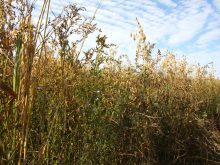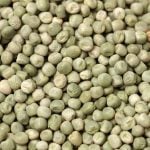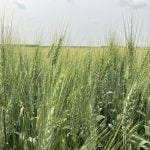Sales of organic products in Britain has stabilized after a recession-driven decline which was particularly severe in the meat sector, the incoming director of the Soil Association said on Feb. 9.
“Last year we saw a drop (in demand), particularly in some areas. The feeling is very much that it is more stable now and some areas have started modest growth,” Helen Browning told Reuters in an interview on the sidelines of the annual conference of Britain’s largest organic certification body.
“The sense for the future is much more positive than the last year or two,” Browning added, noting consumption of organic meat had been among the weakest during the economic downturn while dairy was among the sectors where it had held up well.
Read Also

KAP flags risky trade for Manitoba farmers
Tariffs, market access uncertainty, trade diversification and export infrastructure top the agenda at Keystone Agricultural Producers (KAP) annual meeting.
“People’s values haven’t gone away. They just had other priorities over the last year or two,” she said.
The decline in Britain contrasted with many other European countries where demand for organic products has held up well during the economic downturn.
A report issued by the Soil Association said most European countries had championed organic food as “a pioneering, sustainable and environmentally friendly way to produce food, adding that U.K. governments had been “diffident if not lazy on the subject.”
SIT BACK AND SNOOZE
“When it comes to thinking in a truly sustainable way about the future of food and farming, successive U.K. governments have preferred to sit back and snooze, doing very little to back the organic sector,” the Soil Association said.
Browning said attitudes towards organic farming were different in Britain than in many other European countries.
“In other countries organic is a normal part of the scene. In the U.K. it still seems to be quite an exceptional activity. It is still quite controversial in the U.K. It is not controversial in Germany, in Denmark,” Browning said.
Consumers have normally paid a premium for organic products although there has been a sharp rise in the cost of inputs such as fertilizers used in conventional farming driven partly by rising energy costs.
“I think we will see the price gap narrowing (as energy prices rise). It is happening in some cases already,” she said.
Browning said health and beauty products were among the fastest-growing organic sectors.














